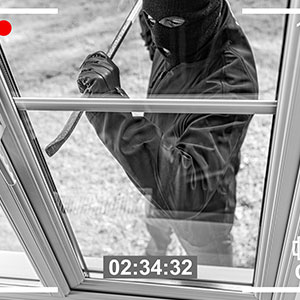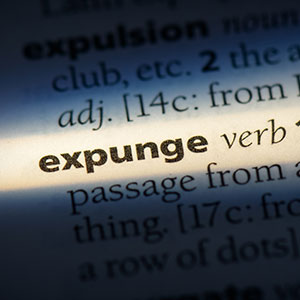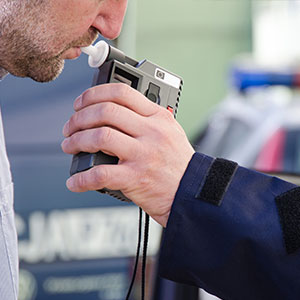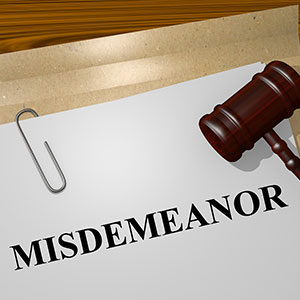
The human body has an instinctual fight or flight response that can occur when a person is in a dangerous or highly stressful situation. In cases where a person feels they are in a life-or-death matter, the desire to survive no matter what is a primitive impulse that can result in behavior abnormal for that person. For example, a non-violent person may use lethal force to protect themselves in a fight. Self defense laws exist for this reason. If you’ve been charged with assault, battery, or another violent crime, you may be able to use a self-defense defense strategy. Here’s what you should know. Do I Have The Right To Defend Myself? Because humans have a natural fight response when faced with danger, people may have the right to defend themselves when…Read More

Burglary Charges In California While burglary is considered a wobbler crime and can be charged as either a misdemeanor or a felony, it is more often than not charged as a felony. This crime, if convicted, carries serious penalties and consequences that have the potential to change your life. Here’s what you should understand about the crime of burglary and how a seasoned California criminal defense attorney can assist you in defending yourself against these charges. What Constitutes Burglary? Many people imagine burglary as a person robbing a bank with a firearm. But this is not necessarily the complete picture of what burglary really is. In fact, the definition of burglary is quite simple. Burglary can be charged anytime someone enters a building without the owner’s permission with the intent to steal…Read More

Juvenile Shoplifters: What You Need To Know Shoplifting is one of the most common crimes committed by juveniles. Whether for the thrill or because of peer pressure, there aren’t many other minor crimes as “popular” among teens and young adults. Here you’ll find revealing statistics and some alarming facts about juvenile shoplifters. Also, you’ll find how to help if your child is arrested for shoplifting. A Quarter Of All Shoplifters Are Kids According to a study published by the National Association for Shoplifting Prevention, 25% of all shoplifters are juveniles. Over Half of Adult Shoplifters Started When They Were Juveniles Of the 75% of adult shoplifters, 55% of them report that they were young when they began shoplifting. This means the shoplifting continued for many years. Shoplifters Aren’t Often Caught Shoplifters —…Read More

What You Need To Know About Criminal Cases In California When you face criminal charges in California, your life is turned upside down. Few things are as challenging as fighting for your rights under the law. It’s important to get help to protect yourself effectively during a criminal investigation and trial. Here’s what you need to know about the different stages of criminal case proceedings and how a criminal defense attorney can assist you throughout the process. You Are Arrested — What’s Next? After your arrest, if the charges against you are not dropped, you could be released from jail. Release could be on your own recognizance if you never committed any crimes before. If not, you could post bond. However, in some cases, law enforcement officials will decide to take an individual to court…Read More

Potential Defenses In A California Robbery In California, robbery is a serious charge met with jail time, fines, probation, a permanent criminal record, and more. If you are charged with robbery, work with a seasoned criminal defense lawyer to ensure a strong case. Here are four potential defenses to robbery and next steps to take to protect your rights and your future. Robbery Committed Under Duress In some cases, a defendant is forced or persuaded to commit a robbery under duress. If you or your family are threatened with bodily injury or death by someone who wanted you to commit the robbery, you can argue that the robbery was committed under duress. This is a difficult defense, however, since proof of duress is often hard to find. Robbery Committed While Intoxicated In order…Read More

California Criminal Record Expungements A criminal record of any kind — whether for a felony or a misdemeanor — can wreak havoc on your life. You may find it difficult, if not impossible, to get a job, rent an apartment, apply for a loan, or even obtain higher education. In some cases, you may be able to have your criminal record expunged. Certain requirements must be met, but if your expungement is successful, your criminal record may no longer be available to employers, landlords, and more. Are You Eligible For An Expungement Of A Felony? Some felony crimes are eligible for an expungement and some are not. Therefore, if you wish to petition for the dismissal of your criminal records, you must not have: Sentenced to serve time in a state prison Committed new…Read More

What You Need To Know About Federal Crimes Federal crimes, sometimes called “white collar crimes,” are non-violent crimes that tend to carry a hefty sentence. If convicted of a federal crime, you face significant penalties. Here’s what you should know about federal crimes and how to get the legal help you need during this difficult time. Money Laundering Money laundering is a serious crime that involves concealing the origins of illegally obtained money. This usually occurs by transferring it through legitimate businesses. Money laundering is a “wobbler” crime in California, meaning it can be charged as a misdemeanor or a felony. However, jail time is usually included in the sentence. Immigration Law Violations If charged with violating U.S. immigration law, you face significant penalties, including deportation. In fact, many individuals are unaware of their…Read More

Probation Violation Help In California After a crime conviction, probation is often enacted. When on probation, you need to follow strict rules, some of which can be difficult to adhere to. Additionally, if you violate your probation, you could face more penalties. Therefore, it’s vital to contact a criminal defense attorney immediately to learn more about what your next step should be. Examples Of Probation Conditions Numerous conditions can be placed on a defendant’s probation. Many of them may be unique to the case. However, the probation conditions that are most common are as follows: Attend mandatory counseling connected with your violation, like drug and alcohol counseling or sex offender counseling Avoid alcohol and drugs and submit to random drug testing Wear a GPS monitoring device that tracks your location and alerts authorities if…Read More

Sobriety Tests: What You Need To Know A breathalyzer test is used to detect the amount of alcohol in a person’s bloodstream through their breath. Along with roadside sobriety tests, the results are used to determine if a person should be arrested for a DUI. But could the test be wrong? Here’s what you should consider. Breathalyzer Basics To Understand There are three versions of a breathalyzer machine that each work differently to measure the amount of alcohol in a person’s bloodstream. Infrared spectrometry is highly accurate but is a cumbersome device that requires a lot of space. Semiconductor testers are often used for personal BAC testing and are the least accurate of the three. Fuel cell breathalyzer tests are what most law enforcement officers use in the field to test BAC…Read More

Does A Misdemeanor Require A Lawyer Many people assume that misdemeanor crimes are trivial and don’t require the assistance of an attorney. While it is true that misdemeanor crimes result in less penalties than felonies if you are convicted, these crimes are still life changing. The short answer is yes, you absolutely still need a lawyer to represent you after an arrest for a misdemeanor crime. Jail Time While some misdemeanors won’t result in jail time, some will. No matter how short the sentence, or even if you end up being ordered to jail only on the weekends, your life will still be significantly changed by incarceration. A lawyer may be able to help you avoid incarceration at all, whereas facing charges without a lawyer gives you a higher chance of incurring…Read More
